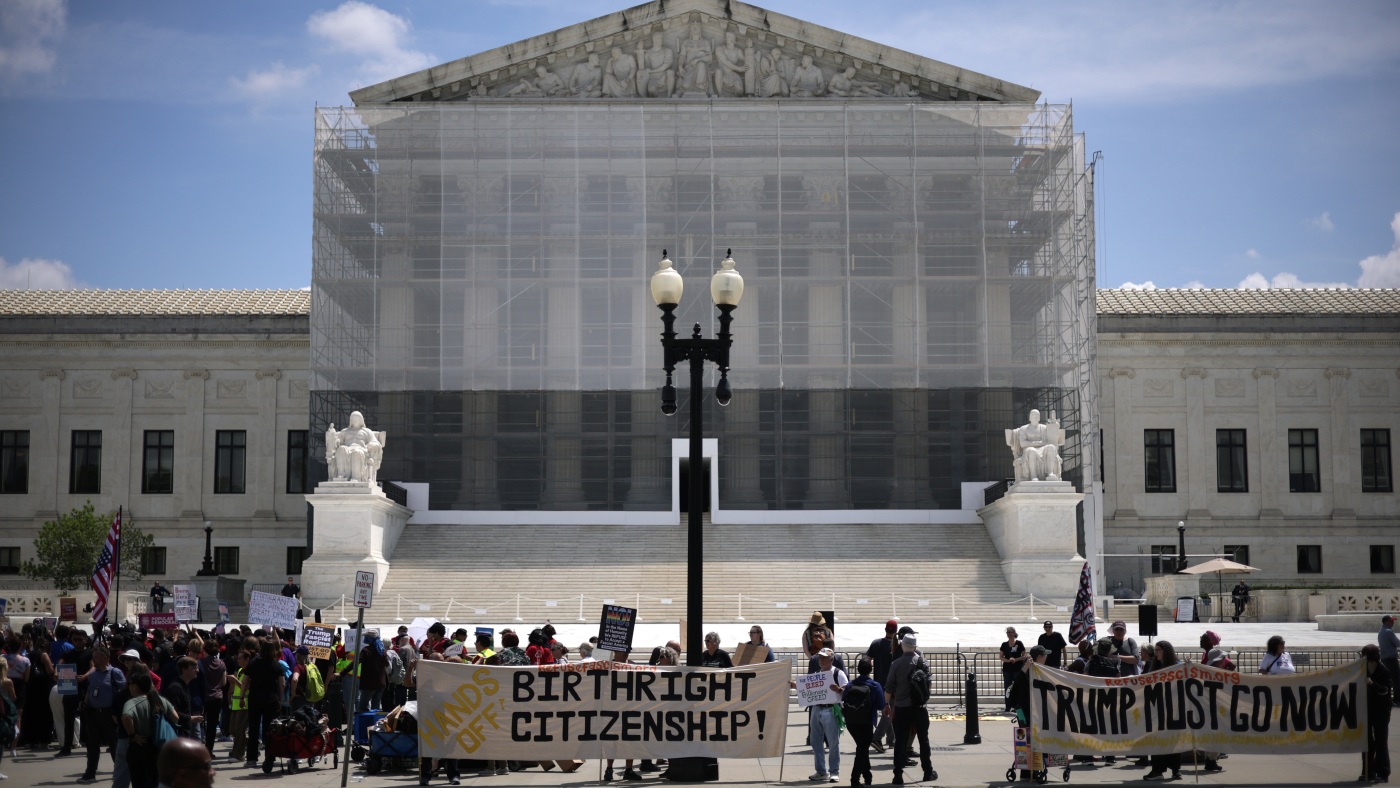The recent U.S. Supreme Court session has thrust two starkly different yet equally compelling narratives into the spotlight: the contentious issue of birthright citizenship and the high-profile criminal trial of hip-hop icon Sean “Diddy” Combs. These parallel dramas, unfolding within the nation’s legal institutions, reveal much about the complexities of constitutional interpretation, the power dynamics of the judiciary, and the cultural forces shaping justice and identity in contemporary America.
Birthright Citizenship: A Constitutional Dilemma Tested
At the heart of heated debate is the 14th Amendment’s Citizenship Clause, which guarantees automatic U.S. citizenship to anyone born on American soil, regardless of their parents’ immigration status. This provision has become the cornerstone of American identity and equality under the law. Yet, it now faces direct challenge through a Trump-era executive order aiming to restrict this automatic citizenship for children born to undocumented immigrants.
Conflicting Judicial Perspectives
The Supreme Court’s justices revealed deep fissures over the extent to which this constitutional right can be limited by executive action. Some justices expressed skepticism about the government’s authority to change or curtail birthright citizenship without explicit legislative approval, underscoring separation-of-powers concerns. Their cautious stance reflects the traditional view that constitutional rights, especially those enshrined in a foundational amendment, cannot be amended or overridden by executive fiat.
Conversely, a faction of conservative justices seemed inclined toward a more constrained interpretation. They questioned the broad application of nationwide injunctions that halt enforcement of the executive order across the country, wary of unchecked judicial intervention in immigration policy. This split underscores an ongoing judicial debate over federalism, judicial reach, and the proper roles of courts and the executive branch in shaping immigration law.
The Nationwide Injunction Controversy
One pivotal point is the judicial power to issue nationwide injunctions—court orders that block an executive policy everywhere in the country rather than just within the jurisdiction of the presiding court. Advocates argue these injunctions prevent a patchwork of conflicting regional rulings that would leave children’s citizenship uncertain depending on geography. Critics claim they represent judicial overreach, upsetting the balance between state and federal courts.
Lower courts uniformly rejected the executive order, citing its infringement on constitutional rights and executive overreach. The Supreme Court’s forthcoming ruling will decisively clarify not only the future of birthright citizenship protections but also reshape the contours of federal court authority in nationwide policy challenges.
Broader Implications for Society and Citizenship
Beyond legal technicalities, this dispute reveals deeper questions about national identity, social cohesion, and how America views immigrants and inclusion. The enduring power of the 14th Amendment’s birthright guarantee serves as a symbol and legal bedrock for equality and citizenship. A weakening of this safeguard risks fracturing immigrant communities and undermining the principle of birthright citizenship as a unifying national ethos amid shifting demographics and political tensions.
Sean “Diddy” Combs’ Trial: Celebrity in the Courtroom Spotlight
Running parallel to this constitutional drama is the criminal trial of Sean “Diddy” Combs, which has attracted intense media spotlight due to its star-studded cast and serious allegations. The first week’s proceedings prominently featured testimony from Cassie Ventura, Combs’ former partner, whose cross-examination is central to the prosecution’s effort to challenge the defense narrative.
Clash of Legal Strategies and Witness Testimonies
The trial highlights the adversarial nature of high-stakes criminal litigation, where the defense strives to dismantle allegations by casting doubt on witness credibility, while prosecutors harness detailed, impactful testimonies to build their case. Cross-examinations are fraught with tension, spotlighting the complexities of procedural justice and evidentiary rigor.
Celebrity status adds layers of public fascination and pressure, making this a trial where the media glare intersects with the gravitas of judicial responsibility. Navigating the fine line between victim protection and ensuring a fair defense amplifies the trial’s significance in setting precedents for cultural attitudes toward sexual misconduct allegations.
Cultural Resonance and the Age of Accountability
This trial unfolds amidst a societal backdrop reshaped by #MeToo-powered conversations about power dynamics, consent, and accountability. It illustrates an evolving cultural landscape where fame no longer guarantees immunity, and public scrutiny demands transparency and justice. The proceedings serve as a crucible for broader debates regarding celebrity influence, victim rights, and the pursuit of fairness in an often-polarized society.
Conclusion: Justice, Identity, and America’s Legal Crossroads
These two legal sagas, one dealing with the foundational notions of citizenship and the other probing individual accountability within celebrity culture, collectively embody America’s current legal and social crossroads. The Supreme Court’s looming decision promises to define the parameters of constitutional rights and judicial reach with implications echoing through immigration policy and civic identity.
Simultaneously, the Diddy trial crystallizes ongoing societal struggles with power, justice, and public accountability in an era where celebrity and culture collide with the demands of law. Together, they reflect a nation grappling to reconcile enduring legal principles with contemporary challenges, highlighting the dynamic interplay between law, society, and identity in shaping America’s future.

